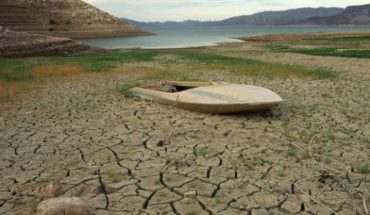We are living in the midst of a climate crisis and we must step on the accelerator thoroughly in the race against it. The latest multi-agency report of the World Meteorological Organization highlights the wide gap between what is sought to be achieved to contain it and the reality that is observed and measured, and warns that, without considerably more ambitious measures, the consequences will be devastating.
The temporary decrease in emission rates produced by the use of fossil fuels that occurred during the confinements due to Covid19, were only a temporary hope, detecting that these currently exceed pre-pandemic levels. What is worrying is that the ambition needed to achieve emission reduction commitments by 2030 must be, according to experts, seven times greater than the existing one, to meet the objective of limiting global warming to 1.5 °C, as set out in the Paris Agreement.
In another report, referring to the Human Cost of Disasters, of the UNDRR (UN Office for Disaster Risk Reduction) impressive figures are delivered, on the estimated losses in different areas, produced by global warming, and the rise in the value of food, projected at 84% by 2050, mainly due to droughts.
Cities, which are home to billions of people and cause up to 70% of man-made emissions, will face increasing socio-economic and environmental impacts. It is estimated that in each of the years between 2022 and 2026, the global average annual temperature near the surface would exceed that of pre-industrial levels (1850-1900) and that this increase would range between 1.1 °C and 1.7 °C. Large cities will be even more exposed to increased heavy rainfall, accelerated sea level rise, acute coastal flooding and extreme heat, among other major risks. This behavior in Chile becomes equally critical, due to its gographic conditions.
Thus, the latest research indicates that for there to be any hope of effectively limiting warming to 1.5°C, coal use must be reduced by at least 95% worldwide, while oil and gas consumption has to decrease by 60% and 45%, respectively, by 2050.
Undoubtedly, the private sector plays a key and relevant role in this, having to align its goals with the country’s global commitments, even though Chile represents a contribution of only 0.26% to world emissions. The State has a crucial role in accelerating investments in the development of renewable energy sources, conversion to cleaner fuels, improvements in the efficiency of combustion processes, promotion of electromobility, planning in water management and education on the modification of sustainable production and consumption trends. However, if companies and organizations do not implement these measures and do not set ambitious goals, no progress is possible.
Many countries such as Chile have implemented policies that have improved energy efficiency, reduced deforestation rates, or accelerated deployment and investments in renewable energy technologies. As we know, reducing emissions becomes more urgent than ever, as we are living at a tipping point with respect to global warming. Awareness of the urgency has increased, regulatory measures and the demands of international investors and global certifications, force to hurry up. We have to prepare to materialize them, because if we ignore them, our planet would be a place incompatible with human life and without hope for future generations.
The action is now and companies that decisively address these measures will be rewarded in their long-term viability, in their reputation, and in the loyalty of their employees, suppliers and customers.
Follow us on
The content expressed in this opinion column is the sole responsibility of its author, and does not necessarily reflect the editorial line or position of El Mostrador.





